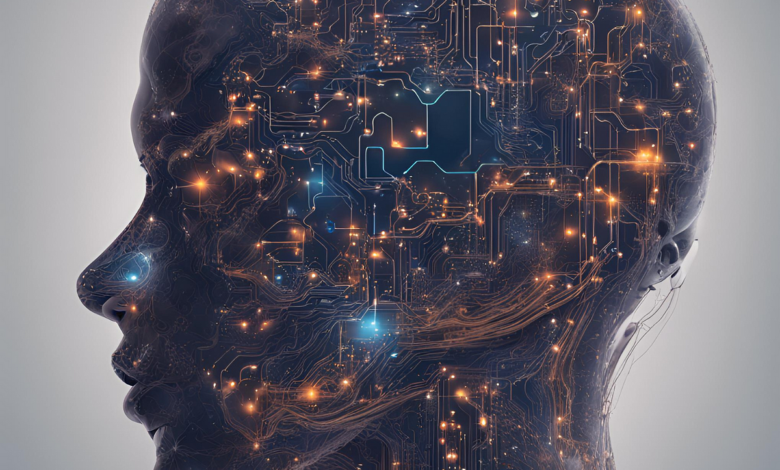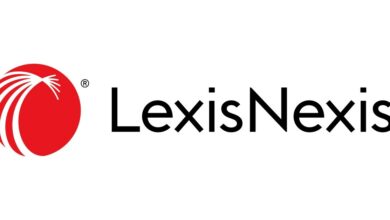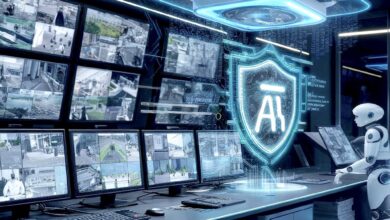Trends in Generative AI. Introduction | by Runday.ai | May, 2024

Introduction
Generative AI is swiftly transforming how we create, innovate, and interact with technology. Positioned at the cutting edge of artificial intelligence, these tools are not just tools of automation but creators that mirror human ingenuity. This article dives deep into the evolution, current applications, ethical considerations, and the bright future of Generative AI.
Understanding Generative AI
Generative AI refers to algorithms that learn from existing data sets to generate new content, from text and images to music and beyond, that is indistinguishable from human-created content. This technology relies heavily on complex models like neural networks and machine learning to understand and replicate patterns.
Historical Evolution of Generative AI
The journey of Generative AI began with simple pattern recognition systems and has evolved to sophisticated models that can generate realistic and interactive media. Key milestones include the development of Generative Adversarial Networks (GANs) and the advent of transformer models that revolutionized language processing.
Major Technologies Powering Generative AI
At the core of Generative AI are neural networks that mimic human brain functionality to process and generate complex data. Transformers, introduced in recent years, allow for handling sequential data, making them ideal for tasks that involve understanding context in text or series of images.
Current Applications of Generative AI
Today, Generative AI powers a vast array of applications. In content creation, tools like DALL-E and GPT models are revolutionizing how we produce art and write. In business, these AI models streamline operations, enhance customer interactions, and provide personalized marketing strategies.
Impact on Creative Industries
In creative sectors, Generative AI is both a collaborator and a tool, enhancing the capabilities of artists and writers by providing them with new ways to experiment and express their visions. For instance, AI-driven music composition tools offer musicians a new realm of sounds and compositions.
Generative AI in Science and Healthcare
Generative models are significantly impacting fields like pharmaceuticals, where they expedite drug discovery by predicting molecular reactions. In healthcare, personalized medicine approaches are being enhanced by AI, tailoring treatments to individual genetic profiles.
Ethical Considerations
As Generative AI continues to evolve, it brings forth significant ethical challenges. Issues of bias and fairness arise from training data, and privacy concerns are heightened when AI models generate data that can be traced back to individuals.
Challenges Facing Generative AI
While promising, Generative AI faces technical challenges like ensuring model reliability and addressing data biases. Societally, there is resistance due to fears of job displacement and the ethical implications of AI-generated content.
Future Trends in Generative AI
The horizon for Generative AI is expansive with predictions pointing towards more integrated, adaptive, and intuitive systems. Advances in understanding and processing human emotions could revolutionize AI interactions.
Role of Open Source and Community
The open-source community plays a pivotal role in democratizing AI development, providing a platform for innovation and collaboration that accelerates advancements in Generative AI.
Business Implications of Generative AI
For businesses, Generative AI presents transformative potentials. From automating routine tasks to generating novel product ideas, it offers companies a competitive edge in rapidly changing markets.
Educational Impact and Workforce Changes
Generative AI is also reshaping education and the workforce. AI-enhanced educational tools offer personalized learning experiences, while the workforce must adapt to the shifting landscape where AI skills are increasingly valued.
Generative AI in Media and Entertainment
Generative AI is reshaping media and entertainment, enabling personalized content creation at scale. For instance, streaming platforms use AI to craft unique playlists and recommendations, tailoring experiences to individual tastes. In film, AI-generated scripts and digital effects are becoming more prevalent, offering filmmakers new tools to tell compelling stories.
Regulatory Landscape for Generative AI
As Generative AI permeates various sectors, the need for robust regulatory frameworks becomes crucial. Governments and international bodies are beginning to draft guidelines to ensure safe, ethical AI use, balancing innovation with privacy and security concerns.
Investment in Generative AI
Investment in Generative AI technologies is soaring as businesses and investors recognize the potential for significant returns. Venture capital flows into startups specializing in AI-driven solutions, driving further innovation and commercialization of AI technologies.
Public Perception and Acceptance of Generative AI
The public’s perception of Generative AI is mixed, with excitement about technological advancements tempered by concerns over privacy and job security. Education and transparent communication from AI companies are vital for improving understanding and acceptance of these technologies.
The Role of AI Ethics in Development
Ethical AI development is imperative to avoid unintended consequences of Generative AI. Initiatives like AI ethics boards and guidelines are essential to guide developers in creating technologies that benefit society without causing harm.
Integrating AI with IoT and Big Data
The integration of Generative AI with IoT (Internet of Things) and big data is unlocking new capabilities. This convergence allows for smarter, more responsive technology ecosystems that can anticipate user needs and optimize processes across industries.
Global Impacts of Generative AI
Globally, Generative AI is seen as a key driver of future economic growth and competitiveness. Countries investing in AI infrastructure and talent will likely lead in technology and innovation, setting standards for global AI practices.
Sustainable AI Practices
Sustainability in AI practice involves developing energy-efficient AI systems and using AI to tackle environmental challenges. Generative AI can help model climate change scenarios, optimize energy use, and contribute to sustainable development goals.
AI and Accessibility
Generative AI has the potential to make technology more accessible to people with disabilities by creating customized tools and interfaces that adapt to individual needs. This could revolutionize accessibility in technology, offering greater independence and quality of life.
Conclusion
Generative AI is not just a technological trend; it is a paradigm shift in how we perceive creativity and intelligence in machines. As we stand on the brink of this AI revolution, embracing its potential responsibly will dictate its impact on our future.
As we navigate the complexities and marvel at the possibilities of Generative AI, it is essential to foster an environment of responsible innovation. By prioritizing ethical considerations and embracing regulatory frameworks, we can harness the potential of Generative AI to create a future that reflects our collective aspirations and values.
FAQs
- What is Generative AI?
Generative AI involves technologies that learn from data to generate new, similar data, including text, images, and sounds. - How does Generative AI affect jobs?
While AI automates certain tasks, it also creates new job opportunities in tech and AI maintenance. - What are ethical concerns associated with Generative AI?
Key issues include data privacy, AI biases, and the authenticity of AI-generated content. - Can Generative AI be creative?
Yes, AI can produce works that mimic human creativity, although the ‘inspiration’ is derived from existing data patterns. - What future advancements are expected in Generative AI?
Future advancements are likely to focus on more nuanced understanding of human contexts and emotional intelligences. - How is Generative AI influencing education?
AI is personalizing learning by adapting educational content to the pace and style of each student, enhancing engagement and outcomes. - What role does the community play in AI development?
The community, especially the open-source community, drives innovation by sharing knowledge, tools, and resources, making AI advancements accessible to a broader audience. - Can Generative AI replace human creativity?
While AI can augment creative processes, it cannot replace the intrinsic human qualities of creativity, such as emotion and subjective experience. - How does Generative AI impact small businesses?
Small businesses can leverage AI tools for marketing, customer service, and operational efficiency, leveling the playing field with larger corporations. - What are the ethical ways to use Generative AI in healthcare?
Ethically using AI in healthcare involves ensuring data privacy, securing patient consent, and maintaining transparency in AI-driven decisions.



